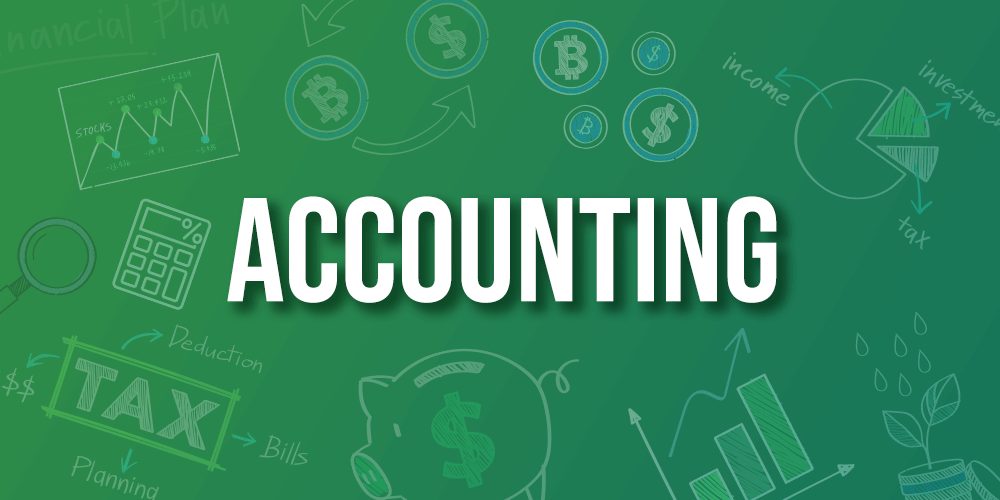Accounting is the process of recording, analyzing, summarizing, and reporting a business’s financial transactions in a systematic manner. Hence, it is not surprising that accounting is considered as one of the key functions of a business. Whether you have a startup or a large, well-established business, maintaining your various accounting information is absolutely vital. This is why the majority of organizations invest in robust accounting software.
In this post, we will take a look at nine different types of accounting and how they work to keep your business running smoothly.
Table of Contents
Nine Types of Accounting

Typically, businesses can use two different types of accounting methods – the cash method and the accrual method. The cash method is the easiest method; however, according to the IRS, if your gross revenue is more than $5 million or if your business is a corporation, then you must use the accrual method.
Let’s take a look at the nine different types of accounting.
Financial Accounting
Financial accounting is the process of recording, analyzing, and reporting the financial transactions of your business operations for a specific period. The financial accountant is responsible for gathering all the financial details and generating financial statements like income statements, balance sheets, cash flow statements, etc. The audience for these financial statements includes business stakeholders and the general public.
Financial accountants also need to ensure that they comply with Generally Accepted Accounting Principles (GAAP), which are in place for U.S. businesses. If your company operates overseas as well, then the accountants also need to abide by the International Financial Reporting Standards.
Cost Accounting
Cost accounting comes into the picture when business decision-makers need to make decisions related to production costs, product pricing, and profitability. In this type of accounting, the accountants are responsible for gathering information about all the costs that are required by the business to introduce their product in the market and decide on the pricing of the product or service. Cost accounting can be divided into four types:
- Activity-based
- Lean
- Marginal
- Standard
The cost accountant needs to measure the fixed as well as variable costs of every production phase. Some of the key costs that fall under this category include labor costs, material costs, and other production-relation expenses.
Auditing
In the world of accounting, auditing refers to the process of looking into the financial statements of the company – internally as well as externally. The auditors can use cash flow statements, income statements, and balance sheets to audit the company’s finances. Accountants specializing in auditing may also be responsible for internal reviews of the financial statements. There are three main types of auditing, each serving a different purpose. These three types are:
- Internal – This auditing helps in assessing the strengths and weaknesses of all the systems and processes within the business.
- External – This auditing helps in providing a neutral and objective view of the company’s financial statements. It is generally performed by a third-party to ensure that the company is in compliance with the law.
- Government – This auditing is performed by the IRS to ensure that the company is reporting accurate information about its tax returns.
Accounting Information Systems
In order to collect and process all the accounting information, businesses use various tools and processes, which are collectively referred to as Accounting Information Systems (AIS). It essentially works as a structure that enables all users to have access to the required information and maintains transparency across the various levels within the business. The three main components of AIS are the people, processes followed, and the tools used. These include:
- Data
- Hardware
- Software
- Human Resources
Managerial Accounting
Managerial accounting is quite similar to financial accounting, with the major difference being how each of them organizes the financial information for their respective audiences. Managerial accountants are responsible for providing monthly or quarterly reports, which help managers and business leaders to develop and forecast their budgets, maximize profits and minimize losses. The three main components in their managerial accounting analysis are key constraints, margins, and popular trends.
Since these are confidential information, managerial accountants must be careful in determining with whom they are sharing the information.
Public Accounting
A business can either employ an in-house accounting team or rely on the services of a third-party by paying them a fee. Public accounting refers to using the services of a third-party. These public accounting firms have a large pool of staff which include different types of accounting professionals as well as Certified Public Accountants (CPAs). You can hire these firms to perform audits, assist in preparing and submitting tax returns, use their expertise in installing accounting technology and software, seek legal advice, etc.
Governmental Accounting
Governmental accounting follows a different set of standards since they have a wider range of stakeholders, and the money is collected through mandatory taxes. It differs from financial accounting in three areas – statements, standards, and reporting procedures. This type of accounting requires three major financial statements, namely, a statement of activities, a statement of cash flows, and a statement of net assets.
Government accountants must comply with the standards set by the Government Accounting Standards Board (GASB) and the Federal Accounting Standards Advisory Board (FASAB).
Tax Accounting
Tax accounting is one of the most important types of accounting for every business. Unlike the other types of accounting, where the focus is on the financial statements, tax accounting focuses on the company’s taxes. Tax accountants are responsible for staying up-to-date on all the tax laws and regulations to ensure that the company is in compliance with all the state, federal, and local tax laws. They are also responsible for examining transactions that affect a company’s taxes and identifying ways to reduce the company’s tax liability.
Forensic Accounting
Forensic accounting requires a high level of investigative and analytical skills. Most forensic accountants typically work with the IRS or other law enforcement agencies. However, companies can also hire them to investigate and examine their financial documents, identify any potential financial thefts, or help in the preparation of audits. One of the key roles of a forensic accountant is to determine if there are any illegal money-related activities like embezzlement, fraud, money laundering, fraud, etc.
Conclusion
Having a systematic record of all your accounting offers businesses several benefits, such as they help organizations develop budgets, it enables them to seek loans from banks, the financial statements play a key role in decision-making aspect of the business, etc. No matter how big or small your organization is, hiring a competent accountant is a must. Unless you have the right information and details about your accounts, you cannot succeed in your business.
If you are looking for the right accounting software to match all your accounting needs, then check out our comprehensive list on SaaSworthy!






